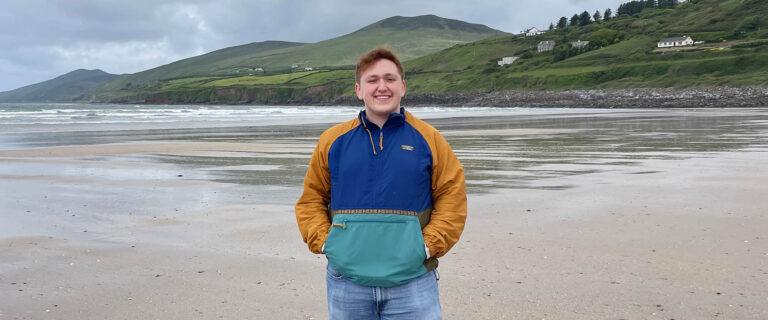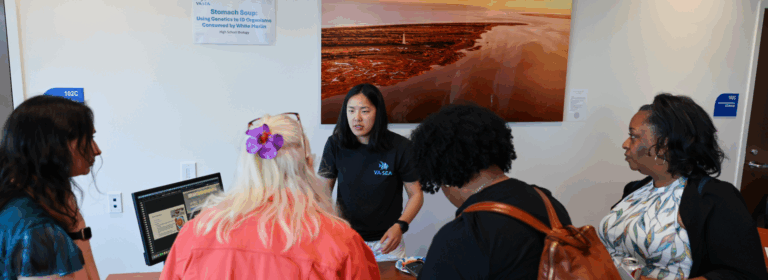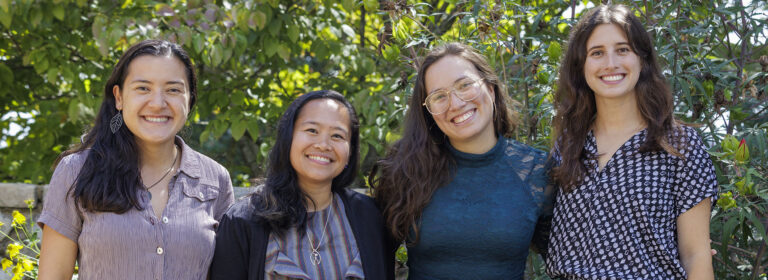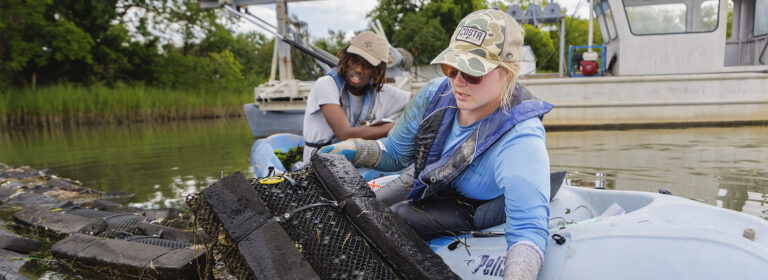Graduate Fellow Hopes to Quantify Carbon Sink of Salt Marshes
Suspended 15 feet above an Easter Shore salt marsh Virginia Sea Grant Graduate Fellow Hannah Mast stretches to check her monitoring instruments as the tide rushes in. With little time to spare she works quickly before water covers the makeshift walkway that leads to her monitoring station from the main channel through the marsh.
Mast, a Ph.D. student in Environmental Science at the University of Virginia, studies photosynthesis in salt marshes using remote sensing. By monitoring properties such as carbon dioxide flux and the light properties of the marsh vegetation at a local level, Mast calibrates larger sets of satellite data to measure salt marsh photosynthesis on a spatial scale.
Salt marshes, along with seagrass beds and mangroves, are very efficient at carbon sequestration and storage. According to the National Oceanic Atmospheric Organization, salt marshes remove carbon from the atmosphere at a rate up to ten times higher than mature tropical forests and store three to five times more carbon than a mature tropical forest, making salt marshes an important carbon sink.
By understanding the photosynthesis of salt marshes, Mast hopes to quantify their value as a carbon sink. “Even though salt marshes don’t cover that much of the land surface, they’re actually really efficient at capturing carbon in the atmosphere,” Mast said.
As part of her fellowship, Mast works with a professional mentor, Dave Davis, Manager of the Office of Wetland and Stream Protection at the Virginia Department of Environmental Quality. Davis believes Mast’s work can be incorporated into the Wetland Condition Assessment Tool and help increase the accuracy and precision of marsh migration prediction due to sea level rise.
“By connection with the professional mentor, I’m really able to understand how my research can be applicable to other stakeholders and what sort of career options are available to me outside of academia,” Mast said.
Video by Lathan Goumas | Virginia Sea Grant
Published March 22, 2024
“I was really drawn to studying coastal wetlands because they are at the nexus of the atmosphere, land, and sea,” Mast said.





